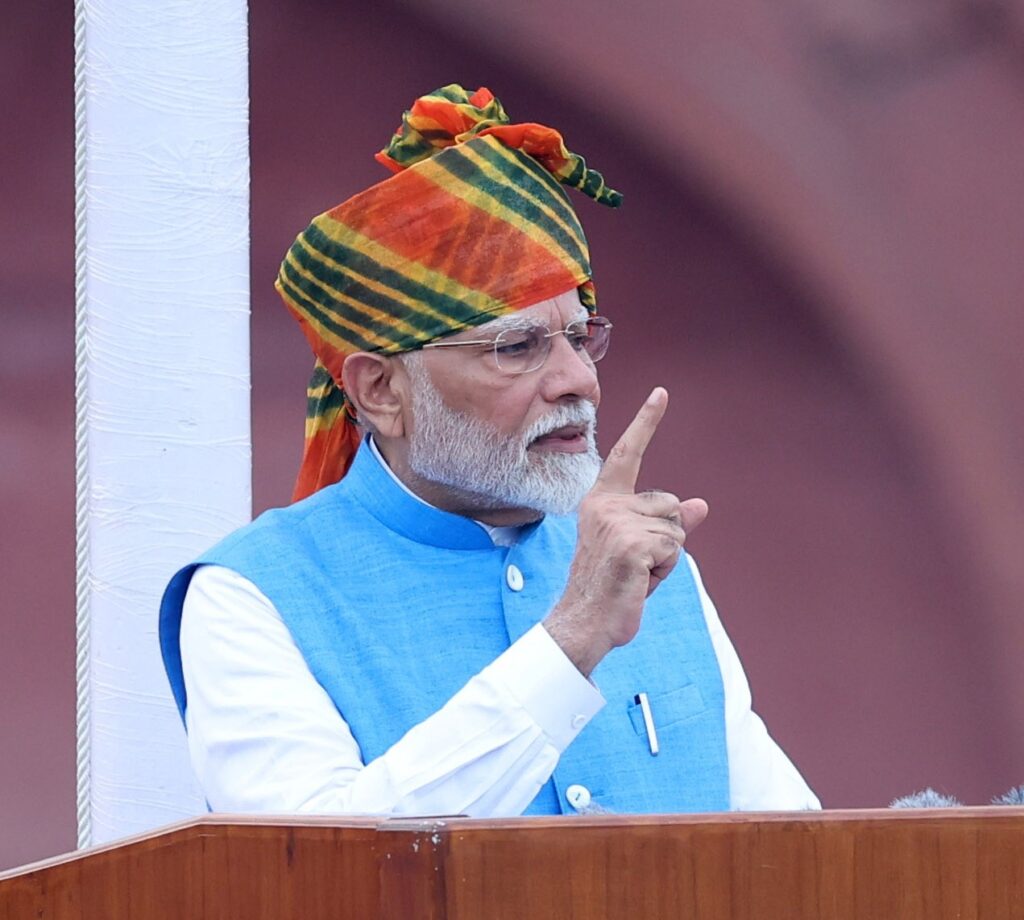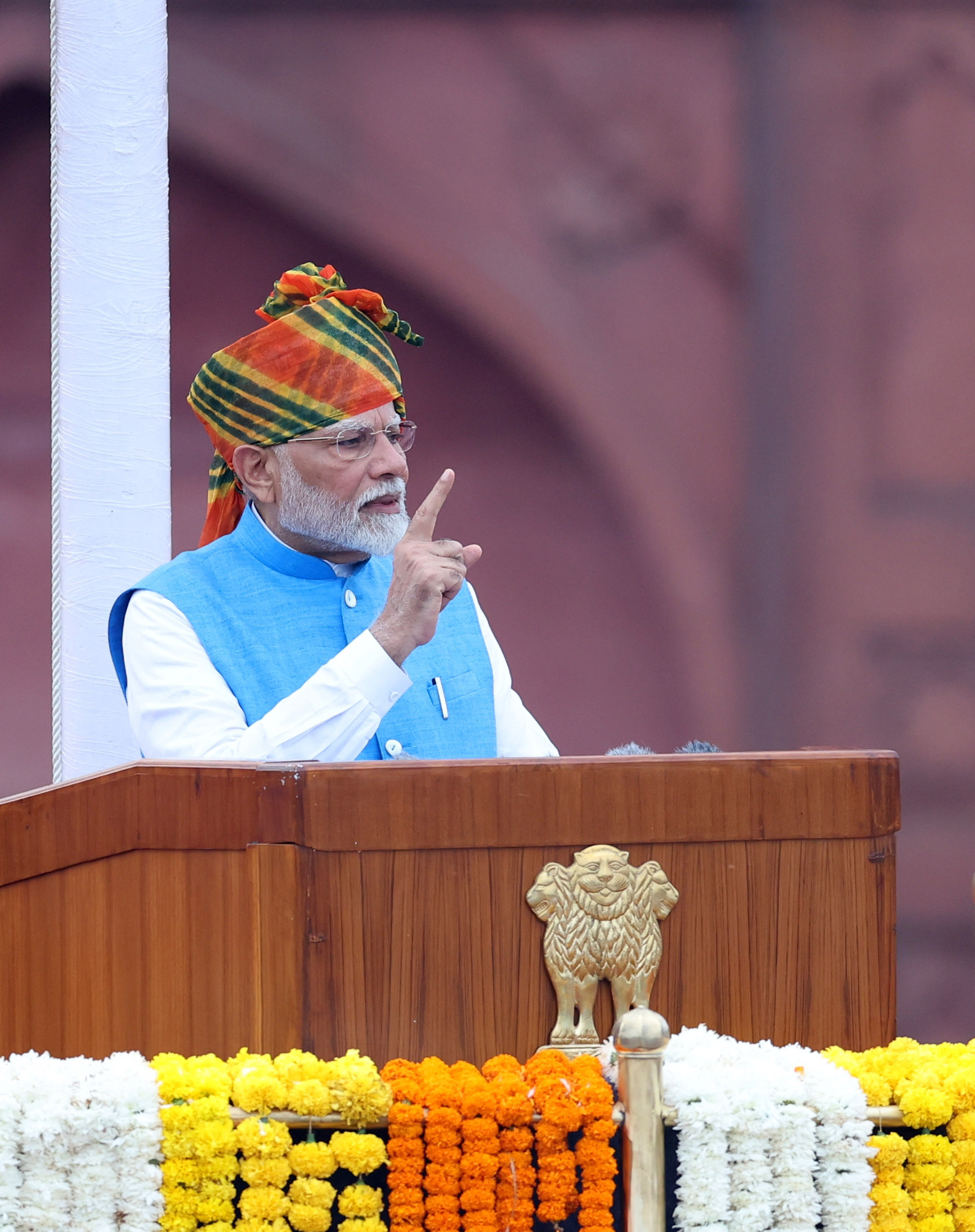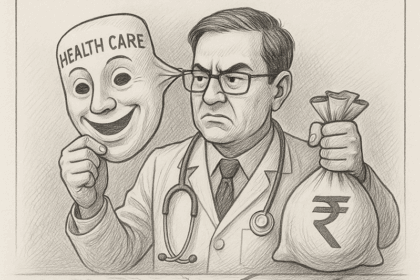PM Modi’s Independence Day Speech Focuses on Economic Reforms, Social Justice, and Technology

In a stirring speech from the ramparts of the Red Fort on India’s 78th Independence Day, Prime Minister Narendra Modi outlined his vision for a “Viksit Bharat” (Developed India) by 2047, emphasizing national unity, economic progress, and social reform.
The Prime Minister began by invoking the power of collective resolve, stating, “If 140 crore citizens of my country, 140 crores of my family members set out with a resolution, determine a direction and march forward step by step, shoulder to shoulder, no matter how great the challenges, how intense the scarcity or the struggle for resources, we can overcome every challenge and build a prosperous Bharat.”
Modi highlighted India’s enhanced global reputation and shifted international perception, declaring this a “Golden Era for Bharat” despite challenging global conditions. He urged citizens not to let this opportunity slip away, emphasizing the need to seize the moment to fulfil national aspirations.
The address covered a wide range of topics, from economic reforms to social justice, touching on key initiatives and future goals across various sectors.
Economic Vision and Reforms
Modi spoke confidently about India’s economic trajectory, predicting that the country would become the world’s third-largest economy during his third term. He pledged to work “three times harder, at three times the speed and with three times the scale” to realize national dreams sooner. The Prime Minister highlighted reforms in banking, infrastructure, and various economic sectors. He noted the success of the ‘Fintech’ sector, the doubling of per capita income, and significant strides in employment and self-employment. Modi also emphasized the importance of modernization and innovation in every sector, with a focus on integrating technology.
Social Justice and Empowerment
A significant portion of the speech was dedicated to social justice and empowerment initiatives. Modi spoke about lifting 25 crore people out of poverty and the government’s commitment to “Sabka Saath, Sabka Vikas” (Together with all, Development for all). He highlighted efforts to empower marginalized communities, including the specially-abled, transgender individuals, and tribal communities. The Prime Minister also addressed women’s empowerment, noting that 10 crore women have become part of self-help groups in the last decade. He announced plans to increase funding for these groups and highlighted the extension of paid maternity leave for working women.
Education and Skill Development
Modi outlined ambitious plans for the education sector, including the introduction of 75,000 new seats in the medical sector over the next 5 years. He emphasized the importance of the new education policy in transforming the system to meet 21st-century requirements. The Prime Minister also stressed the need to develop India as a global education hub and to create opportunities that would prevent brain drain.
Healthcare and Environment
The Prime Minister praised India’s rapid COVID-19 vaccination drive and emphasized the need for a “Swasth Bharat” (Healthy India). On environmental issues, Modi highlighted India’s commitment to combating climate change, noting that the country has met its Paris Accord goals ahead of schedule. He also mentioned the ban on single-use plastics and the ambitious target of 500 GW of renewable energy by 2030.
Infrastructure and Connectivity
Modi spoke about the massive infrastructure development undertaken in the past decade, including improvements in railways, airports, ports, and roadways. He emphasized the importance of last-mile connectivity, mentioning that optical fiber networks have been installed in two lakh Panchayats.
Science and Technology
The Prime Minister expressed pride in India’s space sector achievements, including the Chandrayaan mission. He noted the surge in space sector startups and the launch of private satellites and rockets. Modi also mentioned India’s ambitions in 6G technology and semiconductor production.
Governance and Legal Reforms
Modi stressed the need for less government interference in citizens’ lives as part of the vision for a developed India. He called for at least two annual reforms in each of the 3 lakh institutions operating across the country. The Prime Minister also mentioned the replacement of centuries-old criminal laws with the new Bharatiya Nyaya Sanhita, focusing on justice for citizens rather than punishment.
Foreign Policy and Global Leadership
While emphasizing India’s commitment to peace, Modi acknowledged the likelihood of escalating external challenges. He reassured the global community that India’s development does not pose a threat to anyone. The Prime Minister also mentioned the successful hosting of the G-20 summit, showcasing India’s capability to organize major international events. Prime Minister Modi concluded his address by reaffirming his dedication to the nation’s progress: “I live for you, I live for your future, I live for the bright future of Mother India.” His speech painted a comprehensive picture of India’s achievements and aspirations, setting an ambitious agenda for the country’s development over the next quarter-century. As India celebrates 78 years of independence, the Prime Minister’s address serves as both a reflection on the nation’s progress and a roadmap for its future, aiming to harness the collective resolve of 140 crore Indians to achieve the vision of a developed India by 2047.






